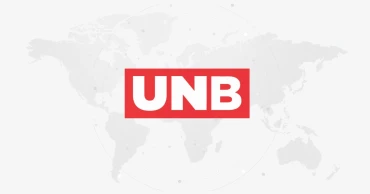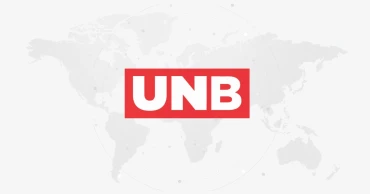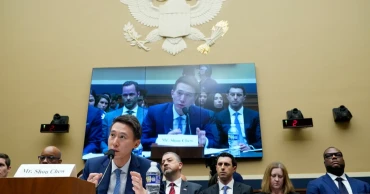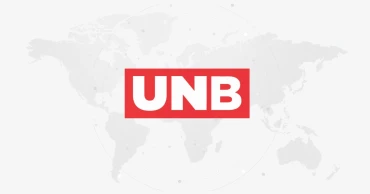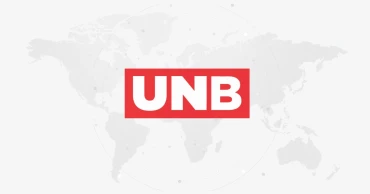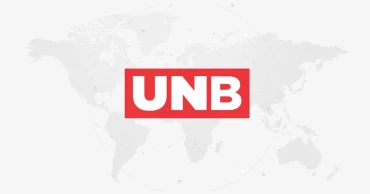ban
Hilsa returns to Chandpur markets after ban; prices fall, buyers rejoice
After a two-month ban that kept nets dry and hopes high, the beloved hilsa has returned to Chandpur’s markets, rekindling excitement among fishermen and food lovers alike.
The renewed supply has led to a noticeable fall in prices, bringing relief to fish lovers and low-income families.
A recent visit to Chandpur’s main fish landing station, known as the Chandpur Fish Landing Centre or ‘Boro Station Macch Ghat’, showed a marked rise in activity.
Around 50 maunds of hilsa are now being brought in daily.
Coolies like Fazal and Almas were seen working nonstop to handle the increasing volume.
Senior fish traders, including Nurul Islam, Didar Khan and Shajahan Sardar, said hilsa from southern coastal areas such as Hatiya, Bhola, Sandwip and Charfesson have started arriving by pickup vans in recent days. Daily deliveries are now from 40 to 50 maunds.
Fishing trawlers, which usually bring in 150–200 maunds at a time, have not yet resumed operations following the end of the ban. Even so, the growing supply from pickup vans over the past three days has helped stabilise the market and drive down retail prices.
This decline is visible across Chandpur’s key markets—Natun Bazar, Pal Bazar, Wireless Bazar, Puran Bazar and Baburhat.
Just a few weeks ago, a one-kilogram hilsa was priced at Tk 3,000.
Now it is selling for around Tk 2,500. Medium-sized fish weighing 700–800 grams are currently priced at Tk 1,700–1,800 per kilogramme, down from Tk 2,300.
Sylhet sees surplus of sacrificial animals ahead of Eid-ul-Azha
Smaller hilsa in the 300–400 gram range, sold in groups of three to make a kilo, are now available for Tk 1,000–1,100.
At Biponi Bagh, Chandpur’s busiest fish market, the same trend is clear. One-kilogramme Padma hilsa are retailing at Tk 2,200–2,500, down from Tk 3,000–3,200. Fish weighing 600–700 grams are selling at Tk 1,500–1,550 per kilogramme, compared to earlier rates of Tk 2,200–2,300.
Shoppers, many with smiles on their faces, were seen leaving markets with prized fish in hand.
Traders said hilsa from the southern coastal districts are more affordable than those from the Padma River.
One-kilogramme coastal hilsa is now priced at Tk 1,700–1,800. Smaller varieties are going for Tk 800–900 per kilogramme.
Still, many buyers said these lack the distinctive taste and aroma associated with Padma hilsa.
Fisheries officials, including Miznur Rahman and Mahbub-e-Rashid, sounded optimistic about what lies ahead. “July through September will see abundant catches,” said one official.
Hilsa traders and fishermen shared the same outlook. Shabebarat Sarkar, a trader with over 40 years of experience and president of a local fish traders’ association, said the volume of river hilsa will rise sharply once the monsoon sets in. Sea fishing remains under a separate ban.
“With increased rainfall in June and July, water levels and river currents will rise—conditions that are ideal for hilsa migration,” he said.
“We expect larger catches and even lower prices in the coming weeks," he added.
Meghna’s Toxic Turn: Mass fish deaths spark alarm among fisherfolk
As hilsa returns in greater numbers and prices ease, Chandpur’s markets are once again buzzing, with the energy of fish trading and the cheer of happy customers.
9 months ago
Demand to Ban AL: Govt to take decision soon in consultation with political parties
Urging patience, the interim government on Friday said they woud soon make a decision on the demand to ban the Bangladesh Awami League (AL) in consultation with political parties.
"Until a decision is taken, all are requested to exercise patience," the government said in a statement amid demonstrations that started on Thursday night.
The interim government has taken a serious note of the recent demand from political parties, organisations and the public to ban the Bangladesh Awami League (AL) due to its "autocratic rule and involvement in terrorist activities" leading to widespread human rights violations, the statement reads.
Instead of cooperation with the ongoing investigations, the party (AL) continues to try blatantly to jeopardise stability of the country, according to the statement issued by the chief adviser's press wing.
In this regard, the government is giving due consideration to the UN report that has highlighted the terrorist activities of AL leaders and supporters during the July uprising.
Led by NCP, protesters block Shahbagh demanding ban on Awami League
"It is worth mentioning that, in response to public demand, the government has already banned the Bangladesh Chhatra League (BCL), the AL student wing, which is widely accused of perpetrating violence and carrying out terrorist activities, under the Anti-Terrorism Act," the government said.
Besides, the statement said the government plans to immediately amend the International Crimes (Tribunals) Act to incorporate provisions for the trial of associations and political parties associated and connected with crimes against humanity.
The government also said it is aware of "public dissatisfaction" regarding the departure of former President Abdul Hamid, who served during the previous regime.
"The government assures all that it is determined to hold accountable those connected with this incident," said the statement.
Former President Hamid, who is accused in a case filed over the attack on protesters during the July-August mass uprising, left Dhaka in the early hours of Thursday for Bangkok to undergo medical treatment.
He departed Hazrat Shahjalal International Airport at 2:55am aboard Thai Airways flight TG340, accompanied by two individuals, according to an intelligence officer stationed at the airport.
The officer, requesting anonymity, told UNB that Abdul Hamid arrived at the airport around 11pm on Wednesday and completed immigration procedures before boarding the flight.
9 months ago
New ACC Commission imposes travel ban on 5 ex-MPs, families
Newly appointed Anti-Corruption Commission (ACC) has imposed a ban on foreign travel of five former Members of Parliament (MPs) and their family members.
The new commission led by its chairman Dr Mohammad Abdul Momen took the decision on the first day of taking charge of office on Thursday.
They are Feni-1 constituency’s former MP Alauddin Ahmed Chowdhury Nasim, Bhola-3’s ex-MP Nur Nabi Chowdhury Shawon, Habiganj-3’s ex- MP Abu Jahir, Noakhali-1’s ex-MP HM Ibrahim Chowdhurym and Lakshmipur-2’s former MP Nur Uddin Chowdhury Nayon.
Taking charge on Wednesday, Abdul Momen on said the commission will start investigation into the allegations against ‘big fish’ immediately as it is the expectation of people.
Read: ACC to start probe against ‘big fish’ soon: New Commissioner
"Work as per public expectations is top priority. We will take action immediately about those cases of corruption which affected the country significantly and take action against culprits who were behind these graft and irregularities," he said while talking to reporters.
1 year ago
Australia imposes world’s first ban on social media for under-16
Australia has made history by passing a world-first law that effectively bans children under the age of 16 from using social media.
The landmark decision comes in response to growing concerns about the adverse effects social media has on the mental health and well-being of young people, including rising incidents of cyberbullying, addiction, and exposure to harmful content.
The legislation, which was approved by Parliament earlier this week, mandates social media platforms to enforce stricter age verification systems.
These new regulations will ensure that individuals under 16 years old will be unable to create accounts or access platforms like Facebook, Instagram, TikTok, and Snapchat. Social media companies now have until early 2025 to implement the necessary changes, giving them time to adapt to the new rules.
Under the new law, platforms will be given a one-year grace period to comply with the age verification requirements.
Starting in 2025, social media companies will be legally required to deploy systems capable of detecting and blocking users under 16. If they fail to meet these regulations, they will face hefty fines, with penalties potentially reaching up to $50 million AUD for repeated violations.
The law has placed significant pressure on social media companies, which will need to develop and integrate advanced age verification technologies to comply.
US universities urge Indian students to return before Trump takes office
Some platforms have already begun exploring digital identification systems and facial recognition technologies to better authenticate users' ages.
However, the widespread use of such technologies has raised privacy and data security concerns.
Australian Prime Minister Anthony Albanese has hailed the new law as a crucial step in safeguarding the country’s youth. He emphasised that the legislation aims to protect the mental and emotional health of children in the digital age.
The decision comes after extensive research by Australian health experts, who have long warned about the dangers posed by social media for young people.
Studies have shown a strong link between excessive social media use and a range of mental health issues, including depression, anxiety, and sleep disorders.
China sentences journalist to 7yrs for espionage
A 2023 report by the Australian Psychological Society revealed that nearly 40 per cent of teenagers reported feelings of anxiety or depression linked to their online experiences.
Cyberbullying and the pressures of social comparison have been identified as major contributing factors to these challenges.
By implementing this groundbreaking law, Australia has set a precedent for the rest of the world, challenging other nations to consider the long-term impact of social media on the younger generation and the steps necessary to mitigate those effects.
Source: With inputs from wirers
1 year ago
In Uganda, a recent ban on charcoal making disrupts a lucrative but destructive business
The charcoal makers in the forests of northern Uganda fled into the bush, temporarily abandoning their precious handiwork: multiple heaps of timber yet to be processed.
The workers were desperate to avoid capture by local officials after a new law banned the commercial production of charcoal. They risked arrest and beatings if they were caught.
But what's really at stake for the charcoal makers is their livelihood.
Also Read: Zimbabwe, Uganda launch first satellites
"We are not going to stop," said Deo Ssenyimba, a bare-chested charcoal maker who has been active in northern Uganda for 12 years. "We stop and then we do what? Are we going to steal?"
The burning of charcoal, an age-old practice in many African societies, is now restricted business across northern Uganda amid a wave of resentment by locals who have warned of the threat of climate change stemming from the uncontrolled felling of trees by outsiders. In reality, not much has changed as charcoal producers skirt around the rules to keep supply flowing and watchful vigilantes take matters into their own hands.
Much of northern Uganda remains lush but sparsely populated and impoverished, attracting investors who desire the land mostly for its potential to sustain the charcoal business. And demand is assured: charcoal accounts for up to 90% of Africa's primary energy consumption needs, according to a 2018 report by the U.N. Food and Agriculture Organization.
Before the charcoal ban, local activists formed vigilante groups in districts such as Gulu, where a former lawmaker recently led an attack on a truck that was dispossessed of 380 bags of charcoal. Although Odonga Otto was then charged with aggravated robbery, the country's chief justice praised him as a hero.
Also Read: Plastic Pollution: Harmful effects on human health and environment
"I have not heard anybody who is destroying our environment being charged," said Chief Justice Alfonse Owiny-Dollo, who is from northern Uganda. "If you steal from a thief, are you a thief?"
The week after Owiny-Dollo's public comments, President Yoweri Museveni issued an executive order banning the commercial production of charcoal in northern Uganda, disrupting a national trade that has long been influenced by cultural sensibilities as much as the seeming abundance of idle land. Commercial charcoal production is still permitted in other regions.
The ban follows a climate change law, enacted in 2021, that empowers local authorities across the country to regulate activities deemed harmful to the environment. Trees suck in planet-warming carbon dioxide from the air, but burning charcoal emits the heat-trapping gas instead.
Days after Museveni's order, a team of Associated Press journalists walked into a charcoal-burning enclave in a remote part of Gulu, 335 kilometers (208 miles) from the Ugandan capital of Kampala.
Also Read: Climbers celebrate Mount Everest 70th anniversary amid melting glaciers, rising temperatures
One local official, Patiko Sub-County Chairman Patrick Komakech, gave chase when he heard fleeing footsteps. A small patch of bamboo opened up to an almost bare patch where trees were being cut, juicy stumps still fresh here and there.
Komakech was agitated and on the verge of tears.
Timber had been heaped like contraband ivory in different spots, and grey smoke rose from one pile being processed. Beside it stood loaded bags of charcoal. The charcoal makers slept in little tarp tents draped in dry leaves.
"I am completely perturbed (by) all this destruction," Komakech said, speaking of charcoal makers who "are actually imported and put in this community, and they do this thing without the mercy of leaving any vegetation."
He kicked at felled logs, saying they were those of the African Shea tree, a plant prized by the region's Acholi people for its fruit as well as its oil, often used in cosmetics.
The charcoal burners eventually approached Komakech, who wished to destroy the heaps of timber with kerosene, and said they were simply earning a living and responding to demand.
Uganda's population explosion has heightened the need for cheap plant-based energy sources, especially charcoal. In this east African country of 45 million people, charcoal is preferred in households across the income spectrum but especially in those of the urban poor — seen as ideal in the preparation of certain dishes that require slow cooking. Middle-class families maintain both gas cookers and charcoal stoves.
"Even those policemen who are coming to beat us, they are cooking with charcoal," said Peter Ejal. "We are not here to spoil the environment. We are here by their orders, those people who are selling these trees."
His colleague, the ragtag charcoal maker Ssenyimba, said bluntly, "When we finish this place we will go to another place."
One charcoal maker asserted that charcoal from northern Uganda was likely used even in the State House. Others charged that they were cutting the trees with the complicity of landlords who sell charcoal-making rights by the acre to interested dealers.
The industry can be lucrative for landowners and investors.
In nearby towns a bag of charcoal fetches about $14, but the price rises further as the goods approach Kampala. Ssenyimba said he's paid about $3 for every bag he makes.
An acre of property with plenty of trees goes for up to $150 in Gulu, although the sum can be much smaller in remote but vegetation-rich ranches owned by the poorest families. The investors then deploy men armed with power saws and machetes, working over specific places and leaving when they have cut down all the trees they were sold.
District councils in the region raise revenue from licensing and taxes, and corrupt members of the armed services have been protecting charcoal truckers, according to Museveni and Otto, the former lawmaker now leading vigilantes against charcoal makers.
Otto has helped cause the impounding of multiple trucks in recent weeks, including two recently seized ones parked outside a police station where a crowd gathered one recent afternoon, hoping to grab the goods.
He said he plans to serve hundreds of local officials with letters of intent to sue for any lapses in protecting the environment. Otto told the AP his goal is to make the rest of Uganda "lose appetite" for charcoal from his region.
"We go to the fields where the charcoal ovens are and we destroy the bases," he said. "We managed to make the business risky. As of now, you drive a hundred kilometers and you will not find any single truck carrying charcoal."
The ban on commercial production in northern Uganda is almost certainly bound to push up the retail price of charcoal. Otto and others were concerned that charcoal dealers would avoid authorities by ferrying charcoal bags in small numbers — on the backs of passenger motorcycles — to towns where the merchandise could be stealthily loaded into trucks.
Alfred Odoch, an environmental activist in the region, said he supports the work of vigilantes, describing charcoal making as "the biggest threat" since the end of a rebel insurgency in the region two decades ago.
Vigilantes pressurize charcoal burners as well as local officials to minimize "mass tree cutting" in northern Uganda, said Odoch. Charcoal making, he said, should be acceptable only as a small business by families selling "two or three sacks" in a week or so.
"My fellow vigilantes who are doing a lot of work to stop this, I support them," he said. "The fight for environmental justice is not only (for) one person."
2 years ago
With complaints, Chandpur fishermen gear up to catch hilsa
The two-month ban on hilsa fishing — in the 70 km Padma-Meghna sanctuary area in Chandpur — imposed by the government to protect “jatka” (hilsa fry), will end at 12am tonight. With the ban lifted, fishermen are preparing to resume hilsa fishing.
Chandpur district has around 44,000 registered fishermen, and they will start fishing from Shatanal of Matlab Uttar upazila to Charbhairavi of Haimchar upazila.
However, fishermen have complained about the full implementation of the ban.
Also Read: 2-month ban on Hilsa fishing to end Sunday midnight
Majority of locals in Chandpur’s Padma-Meghna sanctuary area earn their living through fishing and farming.
After being unemployed for two months, fishermen have repaired their boats and nets in preparation for the resumption of fishing. Fishermen were seen busy repairing nets and boats in different areas of the district.
Some people come from different parts of the district just to repair nets at this time. However, fishermen fear that they will not get the expected amount of fish because fishermen from Munshiganj, Mohanpur, and Shariatpur areas kept catching jatka.
The fishing ban was not implemented properly, said Bahria area fisherman Shahjahan Khan.
Law enforcement needs to be tougher so that no fisherman can go to the river, he said.
Also Read: 29 fishermen punished in Chandpur for violating ban on catching Hilsa
The District Fisheries Officer, Golam Mehedi Hasan, said that the district and upazila task force continued to make every effort to implement the two-month ban to protect the national resource hilsa.
A total of 371 people were jailed from March 1 to April 28 for violating the law and were sentenced to various terms.
With a view to boost the production of hilsa, the government imposed the two-month ban on hilsa catching, selling, hoarding and transporting from March 1 till April 30. The Ministry of Fisheries and Livestock allocated 40 kg of rice for each registered fisherman during this ban period.
Hilsa has the highest contribution to the country's fish production as the single fish species. Every year, the government imposes a two-month ban on catching, selling, hoarding and transporting hilsa to boost production.
2 years ago
Why does US see Chinese-owned TikTok as a security threat?
U.S. lawmakers have grilled TikTok CEO Shou Zi Chew about data security and harmful content, with some pushing to ban the popular short-video app nationwide.
A Singaporean native, Chew told the lawmakers that TikTok prioritizes user safety and as he sought to avert a ban by downplaying the app's ties to China.
Both Republican and Democratic representatives aggressively questioned Chew on topics including TikTok’s content moderation practices, its data security plans, and past spying on journalists.
Also Read: Skeptical US lawmakers grill TikTok CEO over safety, content
Here's a look at some of the concerns about TikTok and its ownership.
WHY DOES WASHINGTON SAY TIKTOK IS A THREAT?
TikTok, which has over 150 million American users, is a wholly owned subsidiary of Chinese technology firm ByteDance Ltd., which appoints its executives.
ByteDance is based in Beijing but registered in the Cayman Islands, as is common for privately owned Chinese companies. Its headquarters is in Beijing’s northwestern Haidian district, home to key universities and a hub for tech startups.
Founded by Chinese entrepreneur Zhang Yiming in 2012, ByteDance is said to be valued at around $220 billion — nearly half of its 2021 valuation of $400 billion. Publicly traded Chinese tech companies and privately held ones like ByteDance have plunged in value since the ruling Communist Party tightened control over the industry with anti-monopoly and data security crackdowns.
Western governments worry Chinese authorities could force ByteDance to hand over TikTok data on American users, exposing sensitive information. China has denied asking its companies to hand over overseas data, and TikTok insists it has never done so and would not do so.
Also Read: TikTok CEO to tell Congress app is safe, urge against ban
ByteDance says 60% of its shares are owned by non-Chinese investors such as U.S investment firms Carlyle Group and Kohlberg Kravis Roberts and Japan's SoftBank Group. Employees own 20% and its founders the remaining 20%.
Some details of the relationship between TikTok and ByteDance remain unclear to outsiders.
WHAT CHINESE RULES WORRY WESTERN GOVERNMENTS?
China's 2017 National Intelligence Law states that “any organization" must assist or cooperate with state intelligence work while a separate 2014 Counter-Espionage Law says “relevant organizations ... may not refuse" to collect evidence for an investigation.
Since ByteDance, which owns TikTok, is a Chinese company, it would likely have to abide by these rules if Chinese authorities asked it to turn over data.
Laws and regulations are only one aspect of the Communist Party’s pervasive control. There are no legal limits on the party’s powers. The authorities also can threaten to cancel licenses, conduct regulatory or tax investigations and use other penalties to compel compliance by Chinese and foreign companies operating in China.
Also Read: China appeals for fair treatment after latest TikTok bans
The party sometimes conveys orders using “window guidance,” or informal communication in private. It has used crackdowns to tighten control over technology companies and force them to align with its goals.
The Chinese government has also sought more direct control over companies by getting seats on boards of directors.
MUST TIKTOK TURN OVER DATA IF THE CHINESE GOVERNMENT SAYS SO, EVEN WITH “ PROJECT TEXAS?”
TikTok has promised to protect data on American users by storing them on servers operated by an outside contractor, Oracle Corp., in what’s known as “Project Texas.” Chew, the TikTok CEO, said all new U.S. user data are stored in the United States and the company should finish deleting older U.S. data from non-Oracle servers this year.
The fear is that ByteDance would have to hand over information it obtained from TikTok if ordered to do so by Chinese authorities, but Chew has said Project Texas will put U.S. data out of China's reach.
Also Read: TikTok dismisses calls for Chinese owners to sell stakes
ByteDance disclosed in December that four employees gained access to data about reporters and people connected to them while looking for how information about the company was leaked. Chew told the lawmakers China-based ByteDance employees may still have access to some U.S. data but that won't be the case once Project Texas is complete.
In November, TikTok’s head of privacy for Europe said some employees in China had access to information about users in Britain and the European Union.
DOES THE COMMUNIST PARTY HAVE ANY INFLUENCE ON BYTEDANCE?
In Thursday’s hearing, lawmakers repeatedly tried to pin down Chew on whether ByteDance had links to China’s communist rulers.
He deflected questions about whether staff and top executives are Communist Party members.
“I do know that the founder himself is not a member of the Communist Party, but we don’t know the political affiliation of our employees because that’s not something we ask,” Chew said.
When questioned whether ByteDance was effectively controlled by the Chinese Communist Party, Chew said he disagreed.
After a lawmaker said the Communist Party holds a “golden share” in ByteDance that allows it to control one ByteDance board seat, Chew said, “That’s not correct.”
In China, so-called golden shares held by official investment funds are one way for Beijing to gain more oversight over business by giving them a 1% stake in companies.
Also Read: White House: No more TikTok on gov’t devices within 30 days
Chew pushed back when lawmakers claimed that the Communist Party owns shares in ByteDance that give it a vote in how the company is run. “The Communist Party doesn’t have voting rights in ByteDance,” Chew said.
ByteDance’s main Chinese subsidiary is the license-holder for some of its video and information platforms that only serve the China market.
Official investment funds have also bought 1% of the Chinese subsidiary of Weibo Corp., the country’s most popular microblog platform, and also of domestic subsidiaries of Alibaba.
WHAT IS DOUYIN AND WHAT IS TIKTOK'S RELATIONSHIP WITH IT?
DouYin is ByteDance’s short-video platform for the China market. It's similar to TikTok, but its content is restricted by Chinese censorship rules that prohibit material deemed subversive or pornographic - a point emphasized by U.S. lawmakers worried about harmful content viewed by young people.
Also Read: China says TikTok ban reflects US insecurities
The Communist Party’s extensive internet filters block most users in China from seeing TikTok. ByteDance has said TikTok has “no affiliation” with Beijing ByteDance Technology Co., the subsidiary that operates DouYin; Toutiao, a news and short-video platform, and other services.
HOW DID CHINA REACT TO THE TIKTOK CEO'S WASHINGTON TESTIMONY?
Most of the social media reaction in China was sympathetic to Chew, with praise for how he handled the hostile questions lobbed at him.
Comments on the microblogging platforms Weibo and Douyin were critical of U.S. lawmakers for asking Chew leading or “trap” questions. Many commenters used a Chinese saying that means “If you want to accuse someone, there's always a way."
2 years ago
White House: No more TikTok on gov’t devices within 30 days
The White House is giving all federal agencies 30 days to wipe TikTok off all government devices, as the Chinese-owned social media app comes under increasing scrutiny in Washington over security concerns.
The Office of Management and Budget calls the guidance, issued Monday, a “critical step forward in addressing the risks presented by the app to sensitive government data.” Some agencies, including the Departments of Defense, Homeland Security and State, already have restrictions in place; the guidance calls on the rest of the federal government to follow suit within 30 days.
The White House already does not allow TikTok on its devices.
“The Biden-Harris Administration has invested heavily in defending our nation’s digital infrastructure and curbing foreign adversaries’ access to Americans’ data,” said Chris DeRusha, the federal chief information security officer. “This guidance is part of the Administration’s ongoing commitment to securing our digital infrastructure and protecting the American people’s security and privacy.”
The guidance was first reported by Reuters.
Also Read: TikTok banned on all Canadian government mobile devices
Congress passed the “No TikTok on Government Devices Act” in December as part of a sweeping government funding package. The legislation does allow for TikTok use in certain cases, including for national security, law enforcement and research purposes.
TikTok spokesperson Brooke Oberwetter said Monday: “The ban of TikTok on federal devices passed in December without any deliberation, and unfortunately that approach has served as a blueprint for other world governments. These bans are little more than political theater.”
House Republicans are expected to move forward Tuesday with a bill that would give Biden the power to ban TikTok nationwide. The legislation, proposed by Rep. Mike McCaul, looks to circumvent the challenges the administration would face in court if it moved forward with sanctions against the social media company.
Also Read: China says TikTok ban reflects US insecurities
If passed, the proposal would allow the administration to ban not only TikTok but any software applications that threaten national security. McCaul, the chairman of the House Foreign Relations Committee, has been a vocal critic of the app, saying it is being used by the Chinese Communist Party to “manipulate and monitor its users while it gobbles up Americans’ data to be used for their malign activities.”
“Anyone with TikTok downloaded on their device has given the CCP a backdoor to all their personal information. It’s a spy balloon into your phone,” the Texas Republican said in a statement Monday.
Sen. Bob Menendez, D-N.J., his counterpart in the Senate, did not shut down the idea of the chamber taking up a proposal that would empower Biden to take action against TikTok, saying it was “certainly something to consider.”
Oberwetter said: “We hope that when it comes to addressing national security concerns about TikTok beyond government devices, Congress will explore solutions that won’t have the effect of censoring the voices of millions of Americans.”
TikTok, owned by ByteDance Ltd., remains extremely popular and is used by two-thirds of teens in the U.S. But there is increasing concern that Beijing could obtain control of American user data that the app has obtained.
The company has been dismissive of the ban for federal devices and has noted that it is developing security and data privacy plans as part of the Biden administration’s ongoing national security review.
Canada also announced Monday that it is banning TikTok from all government-issued mobile devices. The European Union’s executive branch said last week it has temporarily banned TikTok from phones used by employees as a cybersecurity measure.
3 years ago
Barred from Ekushey Book Fair 2023, Adarsha goes to High Court
Md Mahabubur Rahman, the publisher of Adarsha Prakashani, Thursday challenged the Bangla Academy's decision to deny him a stall at the Amar Ekushey Book Fair 2023 in a writ filed at the High Court.
Four people, including the director general of the Bangla Academy, were made defendants in the writ, the petitioner's lawyer Aneek R Haque said. "The hearing on the writ petition is likely to be held next week."
The petitioner sought the court's instruction to allot stalls to the publishing house as soon as possible.
The Bangla Academy, the governing body of the fair, published the allocation list on January 12, where Adarsha's name was dropped.
Later, Adarsha learned about objections towards the book "Bangaleer Mediocrityr Sondhane" by Faham Abdus Salam, son-in-law of BNP Secretary General Mirza Fakhrul Islam Alamgir.
According to the writ, the reason the authorities did not allow the publishing house from attending the fair was a book that is not banned or blacklisted. "So, the decision is invalid as per the Bangla Academy Act 2013. Also, it is against freedom of speech."
With virus-era norms like social distancing now discarded, this year's fair returned to its usual start date of February 1, and barring some unforeseen pandemic-level event, will last the entire month at the Bangla Academy's sprawling premises, along with the adjacent Suhrawardy Udyan in the capital.
Nine hundred and one units were allocated to 601 organisations for this year's fair, compared to 776 units to 534 organisations last year.
Read more: PM opens Ekushey Book Fair 2023 in person for first time in 3 years
3 years ago
No outdoor celebrations on 31st night: DMP Commissioner
No open air events, fireworks and crackers will be allowed on the eve of New Year, said Dhaka Metropolitan Police (DMP) Commissioner Khandker Golam Faruque on Saturday.
“No one will be allowed to hold outdoor programmes, use of crackers, fireworks or sky lanterns (fanush) will also remain prohibited on 31st night,” he said.
The DMP boss came up with the information at a press briefing held at the DMP media centre in the city.
Adequate police including plainclothes ones will be deployed to ensure security on the 31st night and check-posts will be set up in different parts of the city and people will have to undergo police checking so that no militants can carry out sabotage activities centering the night, he said.
The Special Weapons And Tactics (SWAT) team of DMP, dog squad and bomb disposal units will kept ready to tackle any situation, said Faruque.
No DJ parties will be allowed and bars will remain closed from Saturday till 6 pm on Sunday, he said.
No one will be allowed to carry firearms at residential hotels till 10 am on Sunday, he added.
Also Read: Revellers gather in Cox's Bazar to usher in New Year
Besides, the entry of outsiders will remain restricted from 8 pm in Gulshan, Banani and Baridhara areas today but the Amtoli crossing and Kakoli crossing will be opened for allowing entry of residents of those areas, said the DMP commissioner.
Meanwhile, no outsiders will be allowed in Dhaka University area after 6 pm and no vehicles will be allowed there during this period. People can enter the university area through Nilkjhet and Shahbagh areas after showing their identity cards.
Firefighting units and ambulances will be keep ready in different important points of the city and no vehicles will be allowed in Hatirjheel area after sun set.
Also Read: 5 New Year Resolutions that are actually achievable
When asked about any possible militant threat, the DMP commissioner said there is no specific threat centering the 31st night.
3 years ago




